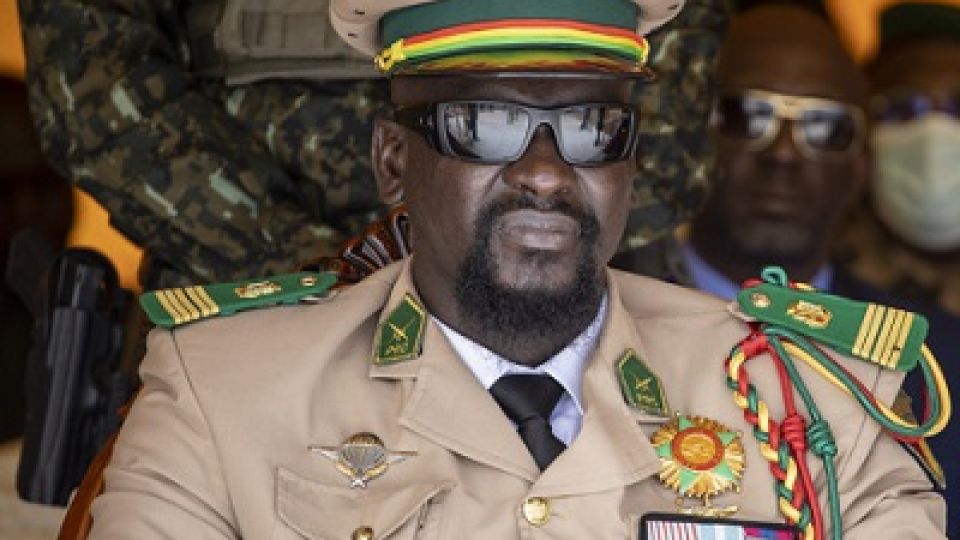from MAMADU ONDO in Conakry, Guinea
Guinea Bureau
CONAKRY, (CAJ News) – THE dissolution of the government by the military regime adds a new dimension to the volatile political atmosphere in Guinea.
Late Monday, Brigadier General Amara Camara, the presidency’s Secretary General, had dissolved the government led by Bernard Goumou, who had been appointed Prime Minister by coup leader Mamady Doumbouya.
In a drastic move, Doumbouya’s ruling National Committee of Reconciliation and Development (CNRD) also froze ministers’ assets and withdrew their travel documents, aid personnel and vehicles.
Deputy ministers and other low-ranking officials are to lead ministries and departments until the appointment of a new government at a time that was not disclosed.
The CNRD closed the West African borders until government ministries were fully handed over to the junta.
However, as of Tuesday (today), the country’s main airport, the Conakry Ahmed Sekou Toure International Airport was operational.
The exact reason for the dissolution has not been provided but there is speculation this would pave the way for probes on members of the just-dissolved administration.
Tight security was observed nationwide, particularly in the capital, Conakry, after the presidential decree.
Increased security measures, including additional patrols and checkpoints were visible.
Political activist, Sekou Diallo, said: “What is happening in Guinea was inevitable because the country needs to be 100 percent free from France, but at the same time burying down any suspicion of corrupt leaders.”
Echoing the same sentiments was students’ leader at the Université Mercure internationale, Alhassane Camara, said at some point the country needed to pass through this phase where “puppets of the West” should be removed.
“No freedom would ever come without some kind of sacrifices, bloodshed or fighting. Once and for all, we would want our youths, fathers and mothers to enjoy the fruits of liberation without Guinea being answerable to any other (France). I hope the new changes in government would also mark the end of corruption. Corruption is a serious cancer that stalls development.”
A security expert forecast spontaneous protests in favor of or against the dissolution to occur, notably in Conakry.
“Authorities may implement restrictions, including curfews, and could restrict telecommunications in response to developments,” the expert said.
This represents the biggest shakeup in the government since September 2021 when Doumbouya led the armed forces to overthrow elected President Alpha Condé, who secured power after an unconstitutional third bid.
The coup is among several unconstitutional takeover of power in the Economic Community of West African States (ECOWAS) regional bloc.
While condemned, the coups have been viewed as a shift by the younger generation to rid neo-colonialism at the hands of France.
Guinea, a country of 24 million people has suffered upheaval in recent months.
This includes anti-government protests in December.
In November, armed assailants attacked the capital’s Central Prison and freed Moussa Dadis Camara, who led Guinea between 2008 and 2010, having come to power via a coup.
Camara, who was re-arrested, was incarcerated for his alleged role in the deaths of dozens of protesters in 2009.
Meanwhile, China has made significant investments in Guinea.
In one of the most lucrative investments, in 2023, the state-owned China Baowu Steel Group signed a multimillion dollar investment agreement with Winning Consortium Simandou to develop Blocks 1 and 2 of the Simandou project.
It is a major natural resources and infrastructure project in Guinea and rated as one of the world’s biggest untapped reserves of high-grade iron ore as well as one of Africa’s largest mining projects.
Simandou is seen as key in reducing China’s reliance on supplies from Australia.
In addition, about half of China’s imports of bauxite, a mineral used to make aluminum, are from Guinea.
Earlier in February, Ambassador to Guinea, Huang Wei, met Chairman of the National Transitional Council of Guinea, Dansa Kouruma, to exchange views on bilateral cooperation projects and other issues of common concern.
Wei noted the China-Guinea ties had a long history and his country would continue to support the economic and social development of Guinea.
Relations date back to 1959, a year after Guinea’s independence.
“China is willing to work together with Guinea to deepen practical cooperation between the two countries in various fields and benefit the two peoples,” the envoy said.
Kouruma described China as one of Guinea’s most important cooperative partners and expressed gratitude for its long-term selfless assistance to Guinea.
“Guinea is willing to continue to work hard to promote the continuous and in-depth development of the traditional friendly relations between the two countries,” Kouruma said.
– CAJ News

